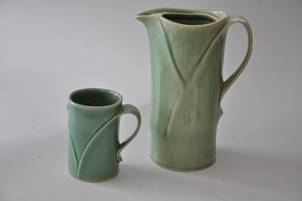The Great Wall of Doubt
The Great Wall of Doubt
By Desmond Yeoh SC
The Buddha said that doubt is one of the major hindrances in our spiritual practices. Doubt is different from having healthy  scepticism. Healthy scepticism is useful when we are willing to open ourselves to teachings that may not correspond to out existing belief system; but at the same time, we do not blindly accept the new teachings either. A person with healthy scepticism is willing to listen and compare his existing beliefs to the new found knowledge. If he finds that the new information is useful, he will accept them and let go of those beliefs that had crippled him in the past. In this way, he is able to punch a hole through his past conditionings that had previously imprisoned him and prevented him from growing. He is then able to move on further along the path towards enlightenment.
scepticism. Healthy scepticism is useful when we are willing to open ourselves to teachings that may not correspond to out existing belief system; but at the same time, we do not blindly accept the new teachings either. A person with healthy scepticism is willing to listen and compare his existing beliefs to the new found knowledge. If he finds that the new information is useful, he will accept them and let go of those beliefs that had crippled him in the past. In this way, he is able to punch a hole through his past conditionings that had previously imprisoned him and prevented him from growing. He is then able to move on further along the path towards enlightenment.
On the other hand, doubt is crippling. It prevents us listening to anything that contradicts our existing conditioning. Whenever we hear something that agrees with our conditioning, we nod our heads enthusiastically and claim that the other person is truly wise. Every time we hear something agreeable, we cling to it more and more. The walls of our past conditioning becomes thicker and thicker and we become more imprisoned by it. The wall becomes more difficult to break through. This is clearly not helpful; unless we are happy to stay at the same place until the end of our days.
It is important that we do not mistake doubt for healthy scepticism. Doubt builds a wall around us while healthy scepticism is a window that we open once in a while to allow fresh air to enter our homes. A house without windows will become more and more difficult to live it. Healthy scepticism is an act of courage while doubt is fuelled by our fears; by our attachment to our existing mental conditioning.
How do we know when doubt is hindering us? We just need to watch our emotions. If we find ourselves getting angry when the other person has not said anything really offensive, then we will know that some deeply held beliefs are being threatened and we are responding to that threat by getting angry. We should then question ourselves why that belief is so important to us. The following story illustrates this.
The speaker said that there is no such thing as hell. He said that the concept of hell was created to scare people into being good. The speaker said this because he felt that people should not be ‘scared’ into being good but should instead be inspired to be good. Ravi could feel his anger rising when he heard this. He is baffled because as he looked around, he could actually see others feeling relieved by that statement. Later, when he went home, he tried to discover why he got angry. He found that the existence of hell was a deeply held belief and he ‘wanted’ hell to exist as a justice system to punish the ‘bad people’. Then he asked himself, “Does it really matter to his present happiness whether or not hell existed”. He found that it does not really matter either way. Realising this, he begin to let go of the belief that hell existed. He neither accepted nor rejected the existence of heel. He merely let go of the belief. That concept no longer weighs him down and he is able to lift himself up higher towards his spiritual goals.
 Doubt is the ‘Great Wall of China’ which keeps people from different religions apart and make them argue against one another. If we start to see that listening to different views can actually help us understand our own religions better, there will be no more unnecessary arguments. Shirdi Sai Baba was revered by both his Muslim and Hindu followers. If we could look past the surface of every religion, doubt will not have a place if our life.
Doubt is the ‘Great Wall of China’ which keeps people from different religions apart and make them argue against one another. If we start to see that listening to different views can actually help us understand our own religions better, there will be no more unnecessary arguments. Shirdi Sai Baba was revered by both his Muslim and Hindu followers. If we could look past the surface of every religion, doubt will not have a place if our life.
To grow, we need to be brave. We need to have courage. We need to open ourselves to ideas that oppose our existing beliefs and conditioning. It is the only way to check if our existing beliefs are build on strong foundations or merely held up by weak wooden pillars which are already rotten. Those rotten pillars will not be able to support us when we are faced with a major life challenge. It is better to replace those pillars now rather than have them collapse on us when we faced with difficulties.

Dec 06, 2012 @ 13:46:51
Even “God” is a concept in mind. A very tricky one to dissolve